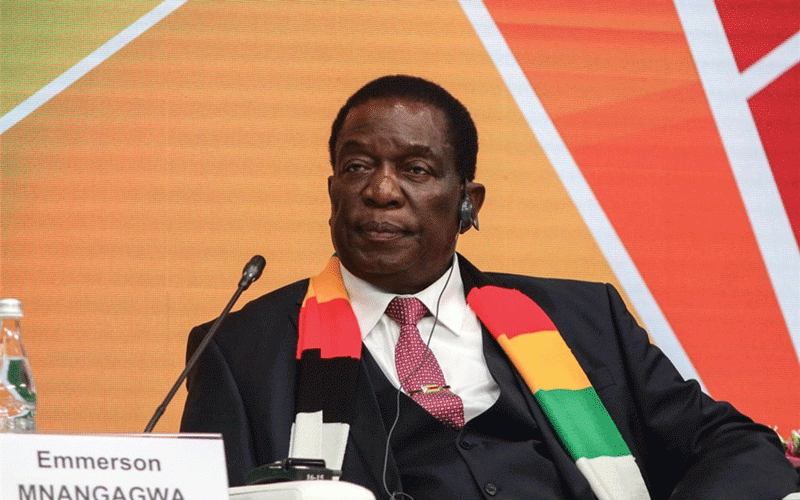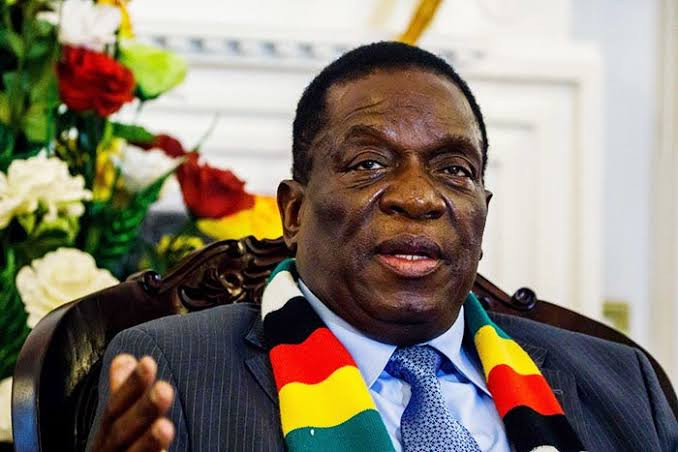
ZIMBABWE has escalated its diplomatic tiff with neighbouring Zambia, after President Emmerson Mnangagwa’s spokesperson George Charamba on Sunday accused authorities in Lusaka of working with the United States government to undermine their counterparts in Harare.
This comes shortly after Mnangagwa told Russian President Vladmir Putin that Zambia posed a security threat to Zimbabwe as its security sector was heavily funded by the US government.
A video of the meeting was made public by the Russian government, with Mnangagwa unaware that the discussions with Putin would be released to the according to Charamba.
Mnangagwa last week told Putin in St Petersburg that Zambia had become an American client State, de-stabilising the region and posing a threat to Zimbabwe.
Zambian political activist Joseph Kalimbwe has already classified Mnangagwa’s remarks as inflammatory and could create a diplomatic crisis, disturbing the peace between the two countries.
In an interview with NewsDay at the weekend, Zambian Information and Media minister Cornelius Mweetwa said the country's Foreign Affairs ministry was engaging authorities in Harare.
However, in a post on X, Charamba under his pseudonym, Dhonzamusoro007, appeared to accuse Zambia of dangerous liaisons with the US and suggested that by associating itself with the US, Zambia had become Zimbabwe's enemy.
“Did we know that SADC has a standing resolution against foreign military influence, including the setting up of foreign bases, in the region???? And that Africa rejected the setting up of US Africa Command (Africom) on its soil, which is why the US Africom is based in Stuttgart, Germany?
- Mnangagwa escalates Zim, Zambia tiff
Keep Reading
“At the height of our stand-off with the West over our land reforms, the West approached South Africa and Namibia with the hope of persuading both or either countries to allow their territories to be used as Beachheads for an invasion of Zimbabwe?
“Of course, Presidents Mbeki and Nujoma flatly rejected that, in line with African solidarity, good neighbourliness, and Sadc and AU resolutions against foreign forces and activities on the continent.
“Do we know that it was Russia and China that vetoed the Security Council draft resolution to put Zimbabwe under the War Chapter thus paving the way for an invasion, a fate which was to befall Libya? Lest we forget in our shrill towards mindless condemnation of right, and equally mindless embrace of wrong.”
In 2022, there were reports that the US Africom was establishing an office at the US embassy in Lusaka with Africom Brigadier-General Peter Bailey, deputy director for strategy, engagement and programmes in the office of security cooperation stationed at the base.
But Hichilema dismissed the reports arguing that the issue was about a defence attaché, which was a normal diplomatic arrangement as most countries have that in their embassies.
This is not the first time that relations between Lusaka and Harare have taken a nose-dive. Shortly after last year’s general elections held in Zimbabwe, officials from the two countries had a public spat after a Sadc election observer mission headed by Zambian opposition leader Nevers Mumba produced an adverse report on the polls.
Political analysts yesterday said Mnangagwa and his officials were undiplomatically placing Zimbabwe as a security threat in the region.
Institute of Security Studies programmes head for southern Africa, Piers Pigou, said the allegations by Mnangagwa's government were meant to deflect attention from his own diplomatic failings.
“In the wake of what is best described as a diplomatic faux pax by Mnangagwa in Moscow, a slew of Zanu PF apparatchiks have been very noisy on social media trying to justify their president’s utterances, fabricating security threats from thin air, making ridiculous claims about US military bases in Zambia and that the Hichilema government presents a security threat to Zimbabwe and Sadc.
“Sadly, and predictable, it is a dangerous and irresponsible narrative, not to mention fundamentally inaccurate. The Zimbabwean government says nothing, but the messaging from the likes of George Charamba’s X account illustrates the intent; the best form of defence is attack; it is designed to deflect; there is nothing new here!”
Professor of World Politics at the University of London’s School of Oriental and African Studies (SOAS), Stephen Chan said Hichilema was mature and confident enough to treat the accusation as “water off a duck's back”.
“Mnangagwa was using this slur as a means of impressing President Putin. However, Putin's Africa strategy is not built upon petty comparisons.
“He would have been happy with Mnangagwa's support but would not have been fully impressed by the way it was expressed.
“This is a grown-up world where power politics is not concerned about quite modest acts of military assistance of the sort the US has conferred upon Zambia.”
Chan said Putin would have been wondering what Mnangagwa was bringing to his table that would be substantial in world politics.
“A formal alliance? Key trading benefits? Zimbabwean military units for the war in Ukraine? Not a slur upon a neighbouring country. Putin would want an ally at ease in a settled region. A stable ally in a stable region,” he said.
Political analyst Effie Ncube said relations between Zambia and Zimbabwe have been deteriorating over the past three years but would not get any worse.
“While I do not expect the relations between the two countries to get worse over the latest incident, it's crucial that they address whatever may be thorny issues affecting their relationship.
“We are neighbours with a long history of harmonious, peaceful and very productive relations which span political, economic, social and cultural spheres,” Ncube said.










